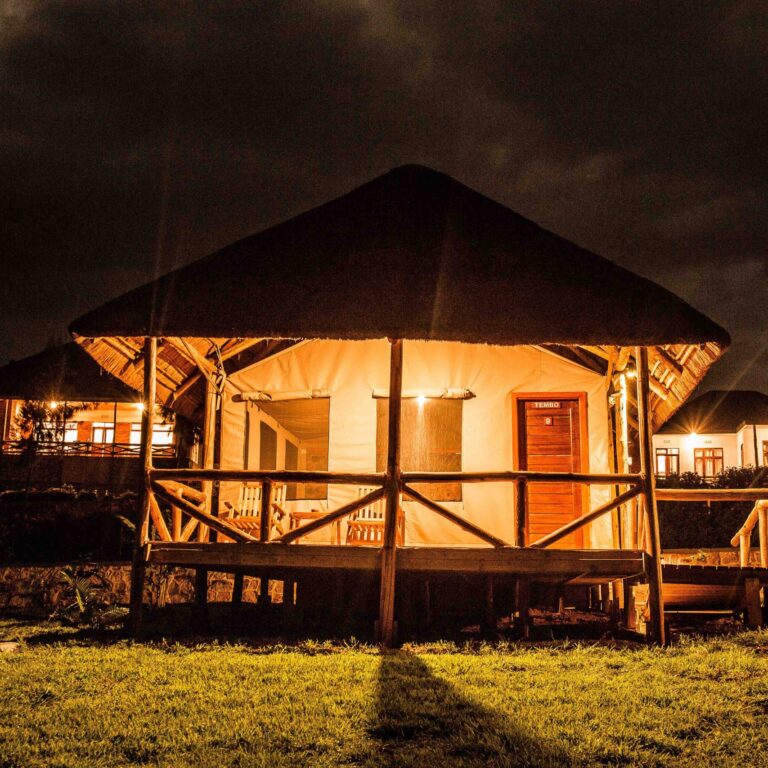The Unfinished Symphony: Why Africa Beckons for a Return Visit. The dust settles, the photographs are sorted, and the stories have been shared reasons you should plan a return visit to Africa. Yet, for many who have experienced the raw magic of an African adventure, a subtle yearning lingers. It’s the echo of a lion’s roar, the memory of a starlit sky unpolluted by city lights, the warmth of a genuine smile from a local artisan. Africa, once visited, often leaves an indelible mark, a feeling that the symphony of its wonders remains unfinished, compelling a return.
The reasons for this magnetic pull are as diverse and captivating as the continent itself. Your first foray might have been a whirlwind introduction to the iconic “Big Five” in the Serengeti, a sun-kissed sojourn on the beaches of Zanzibar, or a challenging trek up Kilimanjaro. But Africa is a continent of immense scale and staggering variety, with countless landscapes, cultures, and wildlife encounters still waiting to be discovered. A return visit isn’t just a second trip; it’s an opportunity to delve deeper, explore different facets, and rekindle a connection with a land that often feels both ancient and eternally new. Here are compelling reasons why Africa deserves a prominent spot on your “must-return” travel list:
1. Unveiling Untouched Corners and Diverse Ecosystems
Africa is not a single entity but a mosaic of distinct countries, each boasting unique ecosystems and wildlife. Your first visit likely scratched the surface. A return allows you to explore contrasting landscapes – perhaps the lush rainforests of Uganda teeming with primates, the dramatic dunes of Namibia’s Namib Desert, the intricate waterways of Botswana’s Okavango Delta, or the vibrant coral reefs of the Red Sea. Each region offers a completely different flavor of African beauty and adventure.
Africa is brimming with hidden gems that many travelers overlook on their first trip. A return visit allows you to escape the typical tourist trail and discover places that aren’t often featured in travel brochures. Consider trekking through the Simien Mountains in Ethiopia, island-hopping in Mozambique’s Quirimbas Archipelago, sailing on a dhow in Lamu, or exploring the untouched wilds of the Central African Republic. These lesser-known spots often offer more authentic, immersive experiences and fewer crowds.
2. Deepening Your Connection with Specific Wildlife
Your initial safari might have been a broad introduction to African fauna. A return visit offers the chance to focus on specific wildlife passions. Perhaps you long to spend more time observing the painted wolves of the Selous, track gorillas in the misty mountains of Rwanda, witness the lemurs of Madagascar, or dive with whale sharks off the coast of Mozambique. A focused itinerary allows for a more profound understanding and appreciation of particular species and their unique behaviors.
3. Experiencing Different Seasons and Their Unique Offerings
Africa’s landscapes transform dramatically with the changing seasons reasons you should plan a return visit to Africa. A return visit during a different time of year can offer entirely new perspectives. Witness the lush greenery and newborn wildlife of the rainy season, the dramatic river crossings of the Great Migration at its peak, or the incredible birdlife that flourishes during specific migratory periods. Experiencing these seasonal shifts provides a richer understanding of the continent’s natural rhythms. Returning to Africa offers a chance to deepen cultural connections, experience diverse wildlife encounters, and engage in new adventures, all while supporting the continent’s vibrant ecosystems and communities.
4. Immersing Yourself in Diverse Cultures and Traditions
Beyond the wildlife, Africa boasts a vibrant tapestry of cultures, each with its own unique traditions, languages, and art forms. A return visit provides an opportunity to delve deeper into these cultural experiences. Perhaps you’d like to spend more time with the Maasai in Tanzania, explore the ancient history of Ethiopia, learn about the intricate beadwork of the Zulu people in South Africa, or experience the vibrant music and dance of West Africa. These immersive encounters offer a richer and more meaningful understanding of the continent’s human heritage.
African cuisine is as diverse as the continent itself, and it’s one of the most underrated aspects of travel here. On your return, you can dive deeper into culinary traditions—like enjoying a traditional braai (barbecue) in South Africa, tasting tagines in Morocco, trying injera and doro wat in Ethiopia, or feasting on spicy jollof rice in West Africa. Food is a cultural gateway, and through cooking classes, market visits, and dining with locals, you’ll gain new insights and unforgettable flavors.
5. Supporting Conservation Efforts and Responsible Tourism
Having witnessed Africa’s beauty firsthand, you might feel a stronger desire to contribute to its preservation. A return visit can be an opportunity to support lodges and tour operators committed to sustainable practices and conservation initiatives. By choosing ethical and responsible tourism, you directly contribute to the protection of wildlife and the well-being of local communities, making your journey even more meaningful.
6. Discovering New Adventures and Activities
Africa offers a plethora of adventurous activities beyond traditional game drives reasons you should plan a return visit to Africa. Perhaps your first visit didn’t allow time for white-water rafting on the Zambezi, trekking through the Drakensberg Mountains, exploring the rock art of the Sahara, or sailing along the coast of Kenya. A return visit can be tailored to pursue these specific interests, adding a new layer of excitement and discovery to your African experience.
7. Building Upon Previous Knowledge and Familiarity
Your first visit provided a foundation of knowledge and familiarity with the continent. A return allows you to build upon that base, recognizing familiar landscapes, understanding local customs with greater nuance, and perhaps even picking up a few phrases in a local language. This increased comfort and understanding can lead to a more relaxed and enriching travel experience.
8. Sharing the Magic with Loved Ones
Having experienced the transformative power of Africa, you might feel compelled to share its magic with family or friends. A return visit with loved ones allows you to witness their first reactions, share your favorite places, and create new, shared memories in this extraordinary land. Introducing someone new to the wonders of Africa can be a deeply rewarding experience.
9. The Continual Evolution of the African Landscape
Africa is a dynamic continent, with ongoing conservation efforts, new lodges and experiences emerging, and evolving political and social landscapes. A return visit offers the chance to witness these changes firsthand, to see the progress being made in conservation, and to experience the ever-evolving spirit of the continent.
10 The Lingering Call of the Wild and the Promise of More
Ultimately, the most compelling reason to return to Africa is the undeniable and often inexplicable pull it exerts on those who have experienced its magic. It’s the feeling that there is still so much more to see, to learn, and to feel. Africa has a way of captivating the soul. Leaving you with a sense of unfinished business and a deep longing to return to its wild heart. The symphony of its wonders continues to play reasons you should plan a return visit to Africa.
And a return visit is an opportunity to listen to its many remaining movements. So, dust off those maps, revisit those photographs, and let the memories of your first African adventure ignite the desire for a return. The continent awaits, ready to unveil new wonders. Deepen your connection, and remind you why its extraordinary spirit continues to call you back. The unfinished symphony of Africa beckons, promising an encore even more captivating than the first.
11. The Sheer Size and Diversity of the Continent
Africa isn’t a country—it’s a continent made up of 54 nations, each with its own unique landscapes, cultures, languages, and traditions. The variety is staggering. From the sand dunes of Namibia to the lush forests of Uganda, from the snow-capped peaks of Mount Kilimanjaro to the ancient rock-hewn churches of Ethiopia. Your first trip may have shown you just one region or country. A return visit gives you the chance to explore new terrains and cultural landscapes. Perhaps trading the wildlife plains of Kenya for the wine country of South Africa or the vibrant markets of Senegal.12. A Different Kind of Luxury
Africa offers a distinct brand of luxury, one that blends natural beauty, sustainability, and intimacy. From eco-lodges in Serengeti National Park to private tented camps in Tanzania. Or beachfront villas in Zanzibar, the luxury here feels personal and connected to the place. Your first visit might have involved rustic accommodations; your return could be a more indulgent affair, complete with outdoor showers under the stars, private game drives, and bespoke experiences tailored just for you.Our Best East Africa Itineraries for Returning Visitors
Discover the magic of East Africa anew with our curated itineraries for returning visitors. Experience the thrill of wildlife safaris in the Serengeti. Explore the vibrant cultures of Zanzibar, and trek the majestic Kiliimanjaro Mountains. Delve deeper into local traditions, savor authentic cuisine. And uncover hidden gems off the beaten path. Each journey is designed to reignite your passion for this breathtaking region, ensuring unforgettable memories and unique encounters await at every turn.Best Age for a Family Safari: When to Go With Kids
Embarking on a family safari is a thrilling adventure, and choosing the right age for your kids can enhance the experience. Ideally, children aged 6 and up are best suited for safari trips. They can appreciate the wildlife and follow safety guidelines. The dry season, from June to October. Offers excellent visibility and active wildlife, making it perfect for young explorers. Engaging in educational activities, like guided nature walks and cultural visits, fosters curiosity and connection to nature. With the right timing, your family safari can create lasting memories and ignite a lifelong love for the wild.Most Remote Places In Africa Worth Visiting
Africa is home to some of the world’s most remote and breathtaking destinations reasons you should plan a return visit to Africa. Explore the untouched beauty of the Kilimanjaro Mountains in Tanzania. Where dramatic landscapes and rare wildlife await. Journey to the vast expanses of Serengeti National Park, where the vast plain of the great wildebeest migration. Discover the serene isolation of the Ngorongoro Conservation Area. A UNESCO World Heritage site teeming with life. Each of these remote places offers a unique adventure, inviting intrepid travelers to experience Africa’s wild heart away from the crowds.The Cheapest Time to Visit Every Country
Traveling the world on a budget requires timing, reasons you should plan a return visit to Africa. In East Africa, Tanzania, visit during the rainy season for lower prices and fewer crowds. In Europe, late autumn offers discounted rates as summer tourists fade. South America’s shoulder seasons, like spring and fall, reveal vibrant cultures at a fraction of the cost. In Africa, consider the dry season for wildlife viewing, but book early for the best deals. Southeast Asia’s off-peak months, like September, promise affordable accommodations. Each country has its rhythm; understanding these patterns unlocks the cheapest adventures, allowing travelers to explore without breaking the bank.Best Places To Stay On African Family Holidays
For unforgettable African family holidays, consider the vibrant beaches of Zanzibar reasons you should plan a return visit to Africa. Where resorts offer family-friendly amenities and cultural experiences. In Tanznaia, Africa, the Garden Route boasts charming lodges and wildlife parks, perfect for adventurous families. Serengeti National Park features safari camps with guided tours tailored for kids, blending education and excitement. In Ngorongoro crater, lodges provide stunning landscapes and family activities like sandboarding. Lastly, the lush landscapes of Tarangire National Park offer eco-lodges near the national park. Ideal for family bonding over wildlife encounters. Each destination promises enriching experiences. Ensuring cherished memories for families exploring the diverse beauty of Africa.Why should tourists visit Africa?
Usually, the number one reason for travellers visiting Africa is to embark on a wildlife safari or climb Kilimanjaro. But there are many more reasons to travel there, including incredible walking routes, big mountains to climb, glimmering seas to relax in, and wonderful islands to explore.Why did people want to explore Africa?
European explorers and missionaries began mapping the interior of Africa in the nineteenth-century. Adventurers like Henry Stanley revealed that Africa was full of raw materials that could be exploited to fuel the industrial revolution. They saw it as a new place to invest the money made in industry.Why do you think Africa is a tourist destination for many people around the world?
From the mighty Victoria Falls to the mount Kilimajaro, the landscapes of Africa are as varied as they are awe-inspiring. However, beyond its picturesque vistas lie abundant wildlife, rich historical legacies, and a plethora of adrenaline-pumping activities that beckon travelers to explore this remarkable continent.What are the positive effects of tourism in Africa?
Rural areas, in particular, stand to benefit from tourism-driven development. Often rich in natural beauty and cultural heritage, these regions can be transformed into hubs of economic activity. Attracting investment in infrastructure, creating jobs, and supporting local businesses
What are the good things about Africa?
The longest river in the world, the Nile River, runs for 6,853km (4,258 mi). The world’s biggest inland delta, the Okavango Delta (see it on our Botswana itineraries). The highest freestanding mountain in the world (and one of the Seven Summits), Mount Kilimanjaro (climb it on our Kilimanjaro treks).Interesting facts about Africa you didn’t know
• It is the second-largest continent in the world.• There are 54 countries in Africa.
• Africa has the world’s largest desert – sort of!
• It is home to the world’s longest river, the Nile
• Most of the world’s diamonds come from Africa.
• Africa makes 70% of the world’s cocoa beans.
• Our earliest ancestors originated from Africa.
• 1.2 billion people live in Africa.
• There are over 2000 different languages spoken in Africa.
• Beware of Hippos in Africa.






